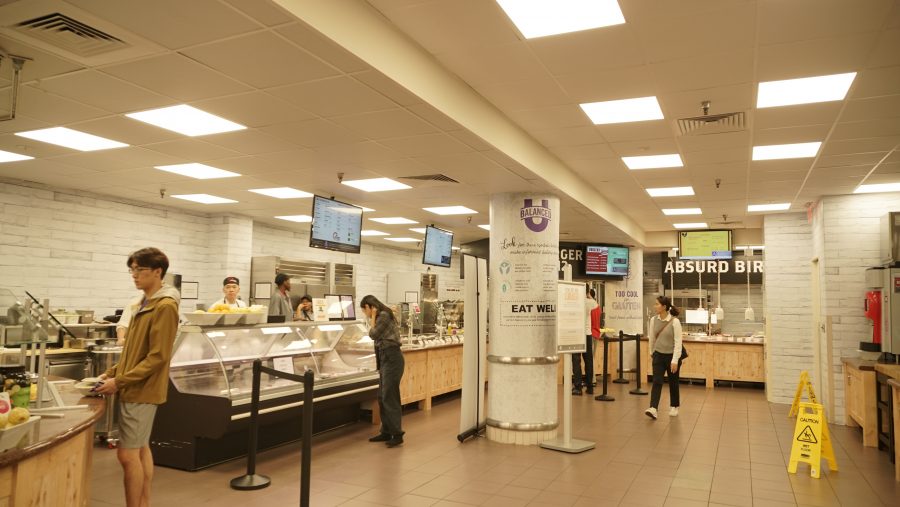Opinion: ‘Let them eat brunch’: NYU’s double standard on COVID-19 food policies
Clubs are disbarred from offering food to students while NYU revives excessive Sunday Palladium brunches.
Palladium Brunch is a staple of NYU Dining. While clubs are currently still prohibited from serving food at in-person meetings, Palladium Brunch is back in full swing. (Photo by Max Lerner)
September 15, 2021
Last weekend, the nyu.eats Instagram account shared that Palladium brunch, a weekly event where the dining hall presents a buffet style brunch in exchange for two meal swipes or the cash equivalent, resumed grander than ever.
Meanwhile, on Sept.10, WSN reported that club events and meetings will remain mainly remote this academic year in order to maintain COVID restrictions. As a part of these restrictions, university clubs are prohibited from serving food indoors.
NYU is prioritizing a meal option invented by rich people as an excuse to drink before noon and show off their wealth. Palladium brunch is an inconsistency and double standard in COVID-19 restrictions when clubs are not allowed to feed their members for free. Profit drives this inconsistency. Palladium brunch is profitable for the university, while clubs serving their members food is not.
The message it sends to students is that serving excess amounts of food in an open space, when in exchange for a meal swipe or cash, is justifiable, but when clubs want the same treatment on a much smaller scale, safety is apparently paramount.
Considering the rise of the delta variant, of course NYU needs to set safety rules. As long as the guidelines are a true reflection of CDC recommendations, NYU’s decision to prohibit university clubs from serving food is reasonable. What is troubling is when NYU then resumes superfluous dining — taking up an entire floor of Palladium with an open buffet — which, unlike the food university clubs would provide, is not free.
While data on food insecurity at NYU is scarce, more than a fifth of students reported financial hardship affording food according to the 2018 Being@NYU survey. This is the most recent recording of food insecurity by the university, which is an issue in and of itself.
In 2016, when the university first launched the Courtesy Meals program to help students struggling with food insecurity by offering 75 dining dollars, the program was not publicised to students. Marc Wais, former senior vice president for student affairs and chair of the Food Insecurity Work group said this was a purposeful decision because the university feared students would “view this as an entitlement or exploit the program.” That first year, the program was only used by 30 to 40 students per semester. However, once the program was properly promoted in 2019, 1,165 students used courtesy meals that semester.
For students who suffer from food insecurity, finding free food on campus is critical. In fact, there is an entire Facebook page for this exact purpose called FREE food @ NYU.
NYU’s public health department should seriously reconsider the decision to allow Palladium Brunch to resume while also prohibiting clubs from offering food. Whether that be delaying any food distribution outside of necessary dining until Spring 2022 or allowing clubs the same opportunities as NYU’s profit activities, consistency and transparency are most important.
Contact Batoul Saleh at [email protected].
























































































































































